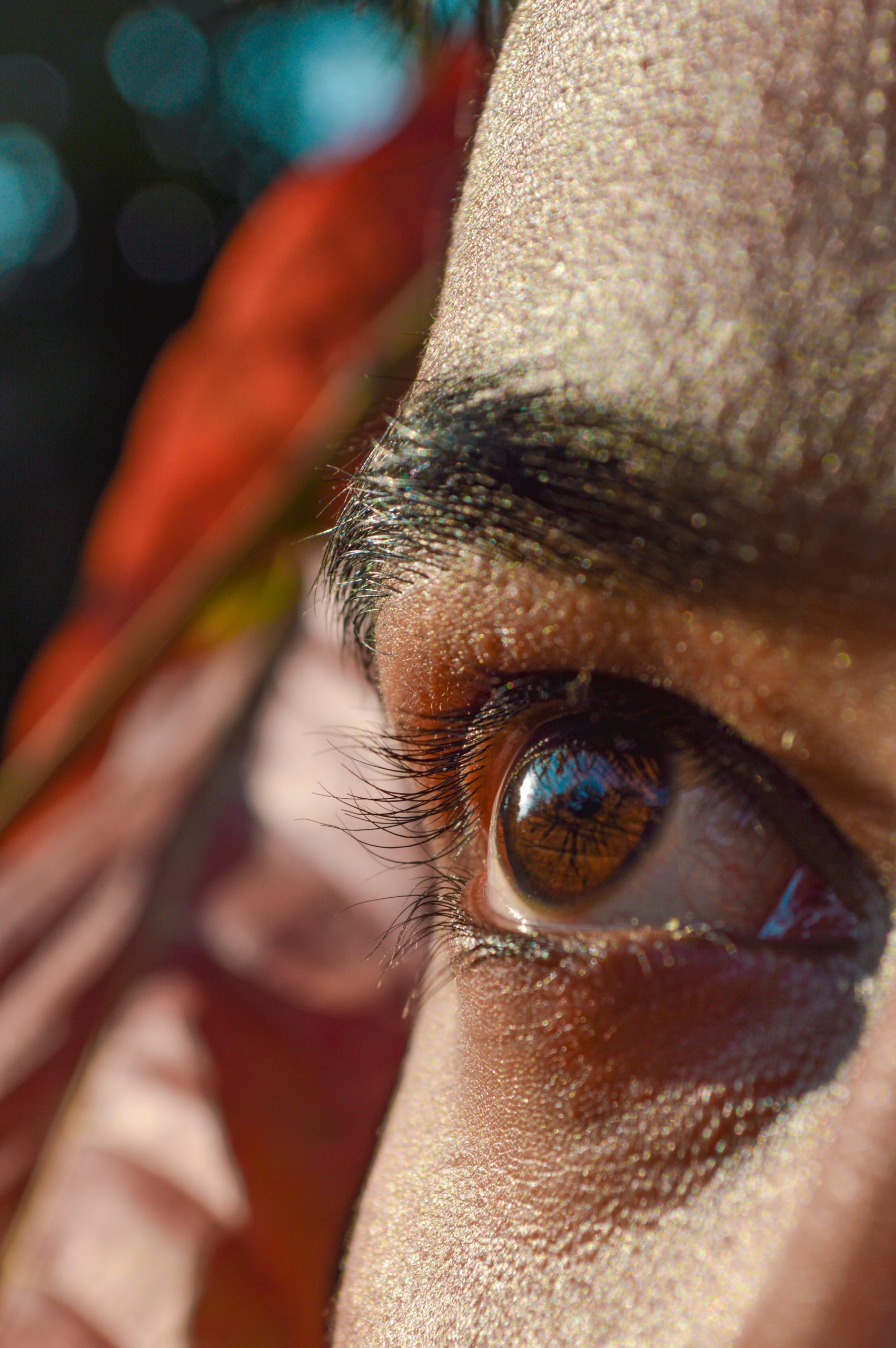

1974, Naples. Marina Abramović performs Rhythm 0, a six hour performance art piece in which she hands control over her body to the audience.
Instructions:
There are 72 objects on the table that one can use on me as desired.
Performance.
I am the object…
During this period I take full responsibility.
Duration: 6 hours (8 pm – 2 am).
At first, the audience started off tame, doing things like tickling her with a feather, or drawing on her body. However, by the end of the six hours, Marina stood there naked.
“I was really violated: they cut my clothes, they put the thorns of the roses in my stomach, they cut my throat, they drank my blood, one person put the gun in my head and then another took it away.”
Such violent displays of behaviour and the corresponding escalation raise questions about how these things happen. Surely this cannot be what human nature resorts to, when there are no rules? Are humans, when given too much power, inherently bad?
Various instances in history give ammunition to this claim. Whether speaking about authoritarian leaders, or Zimbardo’s famous Stanford Prison Experiment, the same argument would eventually come up – that with too much power things would turn sour. Leaders become paranoid, turning to inhumane tactics to stay in power (think of the Great Terror under Stalin), and students at Stanford university – when given the role of prison guard – became brutal oppressors within a matter of days1Notably, Zimbardo himself, who played the role of a superintendent, had given them directed instructions on how to behave (not good research practices, if you ask me)..
In a post-WWII era plagued by questions on the capability of human brutality, these findings fueled the idea that humans are capable of heinous acts. And while the Stanford Prison Experiment has since lost a significant amount of its robustness, our ‘prison guards’ still went to great lengths to use their position of power to oppress their weaker counterparts.
It seems there is some truth to this sentiment that power drives us astray. If we consider zero-sum logic, the notion that there always has to be a ‘loser’ in order for there to be a winner, we can better understand why individuals are sometimes reluctant to give up power. This stems from a fear of losing one’s own privileges and spearheads the belief that if one group’s rights and protection were to progress, those of other groups would have to regress. A view like this gives context to things like the All Lives Matter movement. Perhaps it is less the pursuit of power that corrupts, and more the fear of losing it?
A study using TMS found differences in cognitive functioning between more and less powerful individuals (Hogeveen et al., 2014). More specifically, power appeared to disrupt their ability to mirror2Mirroring is a mental process commonly found in humans, which involves mimicking others’ behaviour, such as yawning when someone yawns., suggesting lower levels of empathy and maybe even higher feelings of disconnectedness to others. In addition to this, power may also place a pair of cynical-coloured glasses in front of your eyes when viewing generous acts by others (Inesi et al., 2012).
This brings us back to Marina Abramović. It turns out that during her performance, a fight broke out between audience members, with some individuals trying to protect her. So perhaps the lesson here is not simply that power corrupts, but that context matters. Just as in the Stanford Prison Experiment, once a norm of cruelty was established, some people felt licensed to escalate their behaviour. And yet, not everyone followed, suggesting the role of individual differences in values, empathy, and a refusal to tolerate injustice. The contrast is telling: those who harmed Abramović acted as if power freed them from responsibility, while those who defended her embraced responsibility despite the risks.
Dutch historian and author Rutger Bregman tackles many of these questions about human nature in his book Humankind (Bregman, 2020), where he uses modern research to support his core idea that – at the end of the day – most of us are actually good, a view supported by Humanistic Psychology. If we assume this to be true, then it must be our circumstances that drive us to abuse our authority and exploit the weak.
If circumstances drive human behaviour, then there’s room to create societal conditions that bring out the best in people. The challenge is not simply to punish individual deviance, but to design systems that encourage the right values. If we treat power as a responsibility rather than an entitlement, and reward displays of empathy and justice, perhaps we can diminish its potential to harm.
Photo by Aryan Dhiman on Unsplash.
References
– Bregman, R. (2020). Humankind: A Hopeful History. Bloomsbury Publishing.
– Hessel, K. (2023, Sep. 25). Marina Abramović’s shocking Rhythm 0 performance shows why we still cannot trust people in power. The Guardian. https://www.theguardian.com/artanddesign/2023/sep/25/marina-abramovics-shocking-rhythm-0-performance-shows-why-we-still-cannot-trust-people-in-power
– Hogeveen, J., Inzlicht, M., & Obhi, S. S. (2014). Power changes how the brain responds to others. Journal of experimental psychology. General, 143(2), 755–762. https://doi.org/10.1037/a0033477
– Inesi, M. E., Gruenfeld, D. H., & Galinsky, A. D. (2012). How power corrupts relationships: Cynical attributions for others’ generous acts. Journal of Experimental Social Psychology, 48(4), 795-803.
– Reynolds, C. J., Knighten, K. R., & Conway, P. (2019). Mirror, mirror, on the wall, who is deontological? Completing moral dilemmas in front of mirrors increases deontological but not utilitarian response tendencies. Cognition, 192, 103993. https://doi.org/10.1016/j.cognition.2019.06.005
– Le Texier, T. (2019). Debunking the stanford prison experiment. American Psychologist, 74(7), 823.
– Ward, F. (2012). No innocent bystanders: Performance art and audience. UPNE.

Photo by Aryan Dhiman on Unsplash
1974, Naples. Marina Abramović performs Rhythm 0, a six hour performance art piece in which she hands control over her body to the audience.
Instructions:
There are 72 objects on the table that one can use on me as desired.
Performance.
I am the object…
During this period I take full responsibility.
Duration: 6 hours (8 pm – 2 am).
At first, the audience started off tame, doing things like tickling her with a feather, or drawing on her body. However, by the end of the six hours, Marina stood there naked.
“I was really violated: they cut my clothes, they put the thorns of the roses in my stomach, they cut my throat, they drank my blood, one person put the gun in my head and then another took it away.”
Such violent displays of behaviour and the corresponding escalation raise questions about how these things happen. Surely this cannot be what human nature resorts to, when there are no rules? Are humans, when given too much power, inherently bad?
Various instances in history give ammunition to this claim. Whether speaking about authoritarian leaders, or Zimbardo’s famous Stanford Prison Experiment, the same argument would eventually come up – that with too much power things would turn sour. Leaders become paranoid, turning to inhumane tactics to stay in power (think of the Great Terror under Stalin), and students at Stanford university – when given the role of prison guard – became brutal oppressors within a matter of days3Notably, Zimbardo himself, who played the role of a superintendent, had given them directed instructions on how to behave (not good research practices, if you ask me)..
In a post-WWII era plagued by questions on the capability of human brutality, these findings fueled the idea that humans are capable of heinous acts. And while the Stanford Prison Experiment has since lost a significant amount of its robustness, our ‘prison guards’ still went to great lengths to use their position of power to oppress their weaker counterparts.
It seems there is some truth to this sentiment that power drives us astray. If we consider zero-sum logic, the notion that there always has to be a ‘loser’ in order for there to be a winner, we can better understand why individuals are sometimes reluctant to give up power. This stems from a fear of losing one’s own privileges and spearheads the belief that if one group’s rights and protection were to progress, those of other groups would have to regress. A view like this gives context to things like the All Lives Matter movement. Perhaps it is less the pursuit of power that corrupts, and more the fear of losing it?
A study using TMS found differences in cognitive functioning between more and less powerful individuals (Hogeveen et al., 2014). More specifically, power appeared to disrupt their ability to mirror4Mirroring is a mental process commonly found in humans, which involves mimicking others’ behaviour, such as yawning when someone yawns., suggesting lower levels of empathy and maybe even higher feelings of disconnectedness to others. In addition to this, power may also place a pair of cynical-coloured glasses in front of your eyes when viewing generous acts by others (Inesi et al., 2012).
This brings us back to Marina Abramović. It turns out that during her performance, a fight broke out between audience members, with some individuals trying to protect her. So perhaps the lesson here is not simply that power corrupts, but that context matters. Just as in the Stanford Prison Experiment, once a norm of cruelty was established, some people felt licensed to escalate their behaviour. And yet, not everyone followed, suggesting the role of individual differences in values, empathy, and a refusal to tolerate injustice. The contrast is telling: those who harmed Abramović acted as if power freed them from responsibility, while those who defended her embraced responsibility despite the risks.
Dutch historian and author Rutger Bregman tackles many of these questions about human nature in his book Humankind (Bregman, 2020), where he uses modern research to support his core idea that – at the end of the day – most of us are actually good, a view supported by Humanistic Psychology. If we assume this to be true, then it must be our circumstances that drive us to abuse our authority and exploit the weak.
If circumstances drive human behaviour, then there’s room to create societal conditions that bring out the best in people. The challenge is not simply to punish individual deviance, but to design systems that encourage the right values. If we treat power as a responsibility rather than an entitlement, and reward displays of empathy and justice, perhaps we can diminish its potential to harm.
<<



